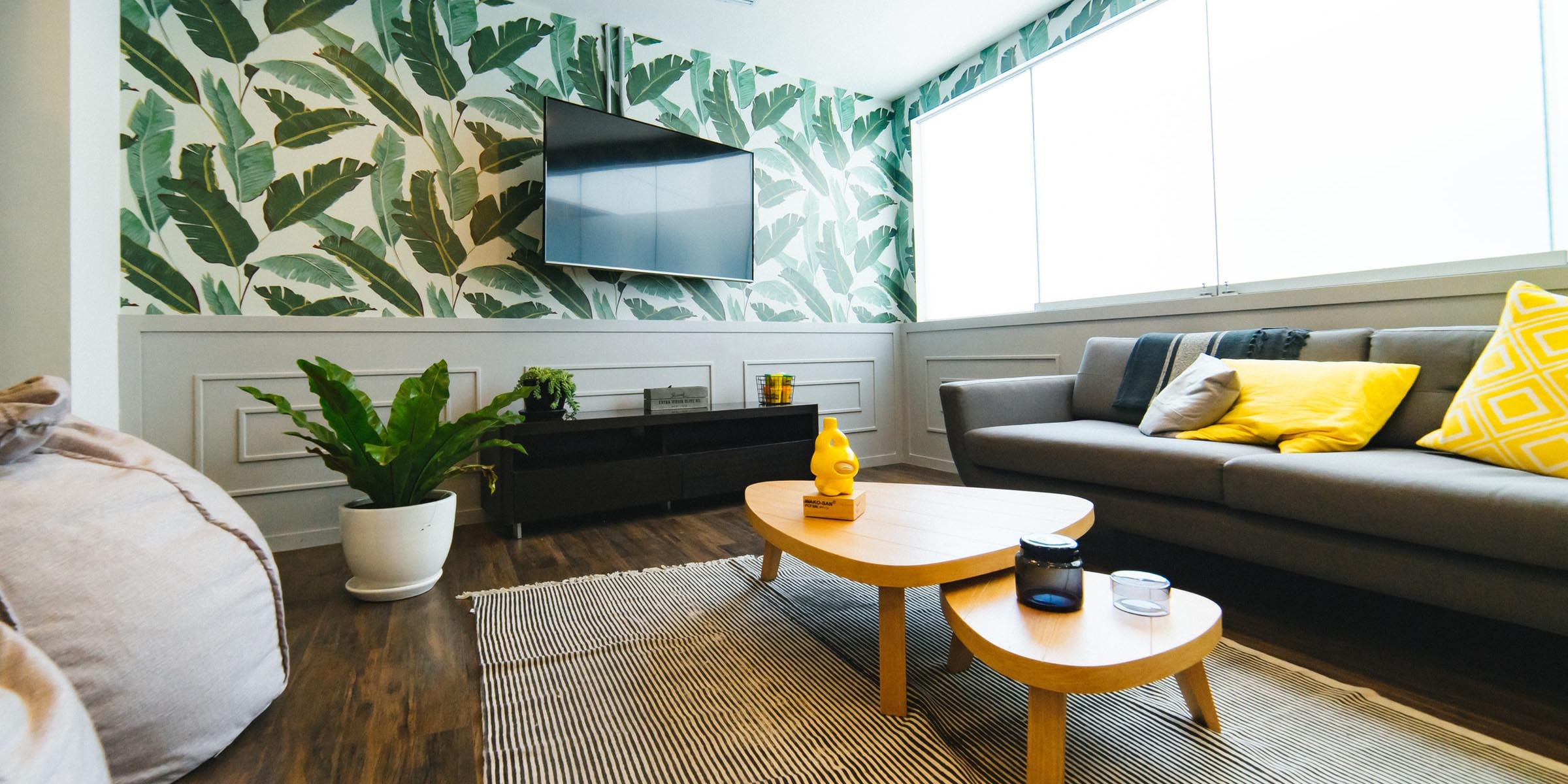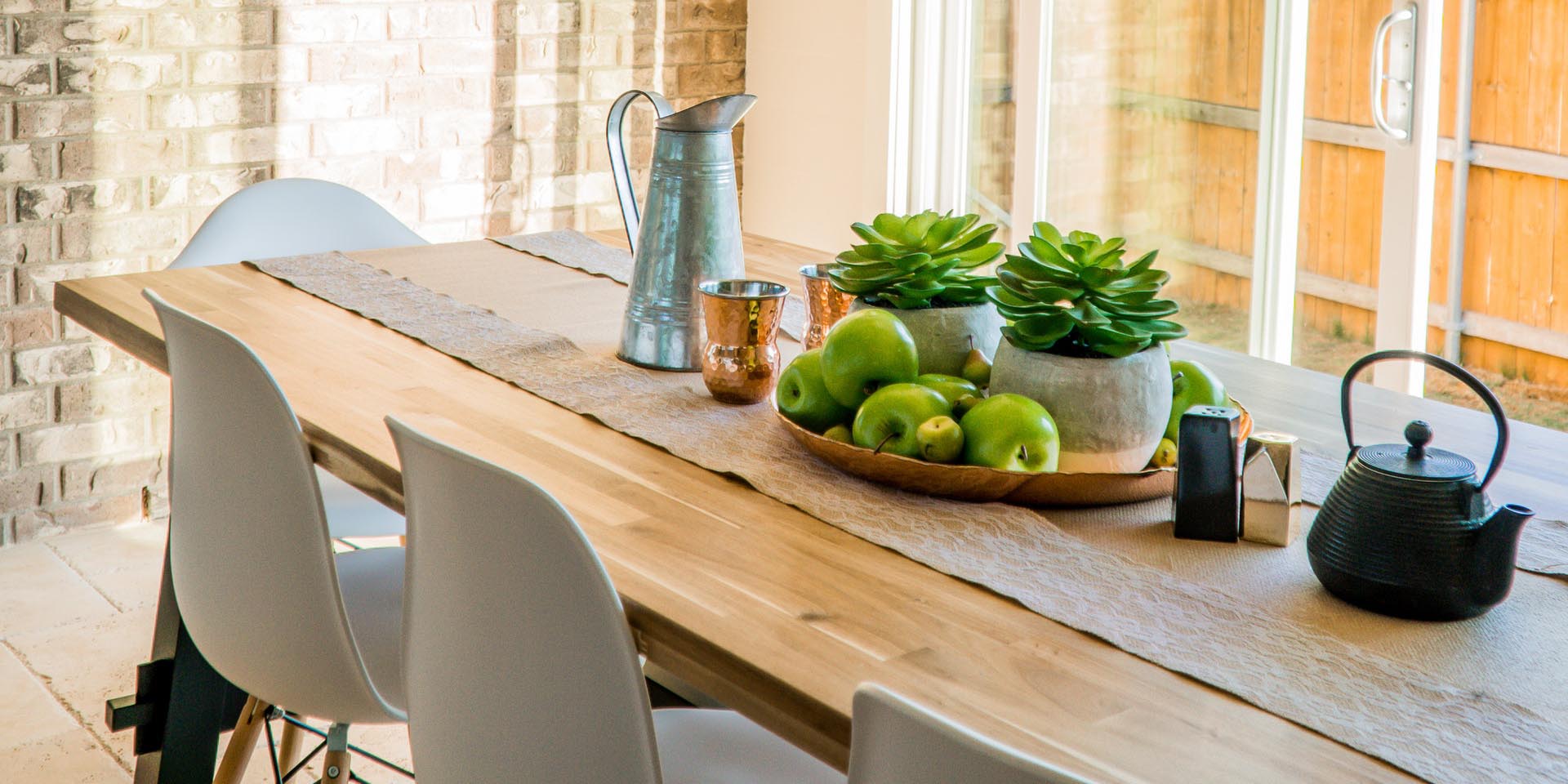
Ever felt that something in your home just doesn’t “feel right”? Felt that something about a room or area was just a little off center? You need some help from the ancient art of Feng Shui. Feng Shui is a system and method of understanding how humans relate to their environment, especially within the home. It focuses on the arrangement of objects and furniture to manipulate how at ease or uncomfortable we feel within a space, and it can make the difference between merely existing in a house or thriving in a home. Below are some great, room-by-room Feng Shui tips and tricks to energize and bring out the best in your living space.

Living Room
• Should be arranged in a way that is conducive to conversation–not too scrunched together, but not too far away either. Make sure that every seat has a surface on which to place a drink or book.
• The sofa against the farthest wall from the entryway, with a good view of the door. A solid backing and visual access to all incoming and outgoing activity promotes feelings of safety and security. If you must have a floating sofa or couch, make sure you place a large table or console behind it, with some tall lamps or vases.
• Avoid filling the space with too much furniture, especially furniture that has sharp edges like tables. Sharp edges pointed at guests can make the space seem subconsciously threatening. Keep an even balance of rounded and square shapes in the room.
• Use sheer curtains to soften window views that are aesthetically lacking.
• Carefully consider what you use as the focal point of the room, because that will determine its primary use–whether you want it to or not. Having a TV in the living room is totally fine, but consider putting it off to the side if you want the main purpose of the living room to be for gathering and quality time.
• Place treasured or favorite objects within plain view. Having objects that make you happy in constant view will literally make the room your “happy place.”

Dining Room
• The size of the table is very important. A small table in a large space will make you feel lost, and a large table in a small space will make you feel trapped. Make sure there’s plenty of room to move chairs in and out, and for people to move by each other. The material of the table is also important; wood is often best. Materials like metal or glass make a good deal of grating noise against glasses and plates, subtly filling the space with nervous energy.
• Use ambient lighting as opposed to spotlighting to promote feelings of inclusiveness and intimacy. A rug also helps to ground the space and promote closeness.
• Never use the dining room table as a dumping ground for mail or other clutter. This blocks the natural energy of the space, and associates it with the stress of bills, unneeded objects, etc.

Bedroom
• Sleep scientists aren’t the only ones to harp about electronics in the bedroom; most schools of Feng Shui insist just as strongly on no electronics in the bedroom ever. In addition to being distracting, cell phone and laptop use brings a busy energy to a space that should be about rest and relaxation. Bite the bullet and kick the screens out.
• On that note, lighting should be soft to promote restfulness. Eschew overhead lights for soft, shaded lamps.
• Contrast the sumptuous and the simple with silk and wood, drapes and shades.
• The head of the bed should be on the wall farthest from the door but not directly across from it. This keeps the energy particular to the bedroom within and the busier energies of other parts of the house without.
• Even if you live alone, the bed should have both sides free. This will keep you from feeling trapped and let energy flow freely through the room. Be sure to balance each side with a bedside table and soft lamp.